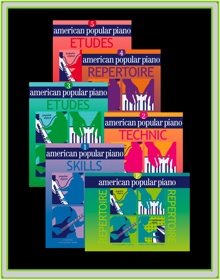I have been a guest of the IRMT (Institute of Registered Music Teachers - www.irmt.org.nz) in New Zealand before. This time I was already in the country prior to the “Beyond Microjazz” tour of Australia but my invitation was originally via Rosemary Miller, a wonderful piano teacher and composer based in Christchurch who can safely claim to have been my first composition teacher.
I was very pleased to be sharing the billing at this conference with Graeme Humphrey. Graeme, a fellow New Zealander, has been a Professor of Piano at the Royal Academy of Music since 1974, and has been actively involved in adjudicating, examining and teaching around the world. He is also active in seminars for teachers in the United Kingdom and abroad, and maintains a substantial private teaching practice with pupils of all ages and stages. He has a particular interest in piano duets and we, along with typesetter Andrew Jones, have created a website called www.fourhandsplus.com, that predominantly features music for four hands. A number of excellent anthologies have been produced, some of which include new compositions of mine. Graeme did a session on duets before I arrived at the conference.
My first session was called Music for Ensemble and followed on from Graeme’s session quite naturally. I began by talking about Two at a Time, the series of duet anthologies that Graeme and I have helped to create. We played together and I also got a number of teachers to join us in an expanded keyboard ensemble.
I then talked about the ensemble aspects of American Popular Piano, ranging from Preparatory pieces to Level 6. Finally, I presented Microjazz ensemble pieces, including an on-the-spot percussion ensemble (done by the audience divided into 10 parts) created to accompany a 6-hand arrangement of Tip Top from Microjazz Collection 1! I drew people’s attention to the Microjazz Trios Collection before we finished with an SA and piano version of Joshua fought the battle of Jericho from my new choral book In the need of prayer with the full group.
I think teachers felt that the session had a definite cumulative element, with more and more performers taking part as the afternoon progressed. It was a great way to involve everybody, including a violinist and cellist.
The second session was called Getting Started, Keeping Going and was exploring improvisation. I started by talking about why some students improvise before teachers try to teach them how to do it! The reasons for this include:
: They’ve heard (or seen) music they’d like to play and try to work it out
: They’ve started to write their own songs
: They play in church
: They have jazz-playing parents (the best reason!)
This is all great, but teachers can feel left out and may need to start to explore simple improvisation ideas themselves if they are going to be able to comment usefully. American Popular Piano is a good way to start this educative process.
We all agreed that there are a number of reasons why teaching improvisation is a “good thing” for all students – encouraging listening skills, improving time playing, even discovering the individual “voice” of the student.
I then took the teachers through the various steps we use in APP – learning a piece, identifying its key and which notes are used, clapping a beat, clapping a (given) rhythm, playing the rhythm on the key note, then on more notes….I was ably assisted by one of the teachers, who started off doing the simple tasks required of her and ended up improvising beautifully:
I used pieces from a number of APP levels and it was clear that the methodology was useful for a variety of situations, including group lessons and for instruments other than piano. As with the subsequent Australian tour, there was a hunger for an improvisation method that actually “works” and this seemed to be one that does!
I was also pleased to meet up with Richard Mapp, a very fine New Zealand pianist who I knew as an undergraduate at Otago University and with Roy Tankersley, who I taught with at Tawa College in the late 70s. And of course there were many familiar faces among the teachers as well.















No comments:
Post a Comment